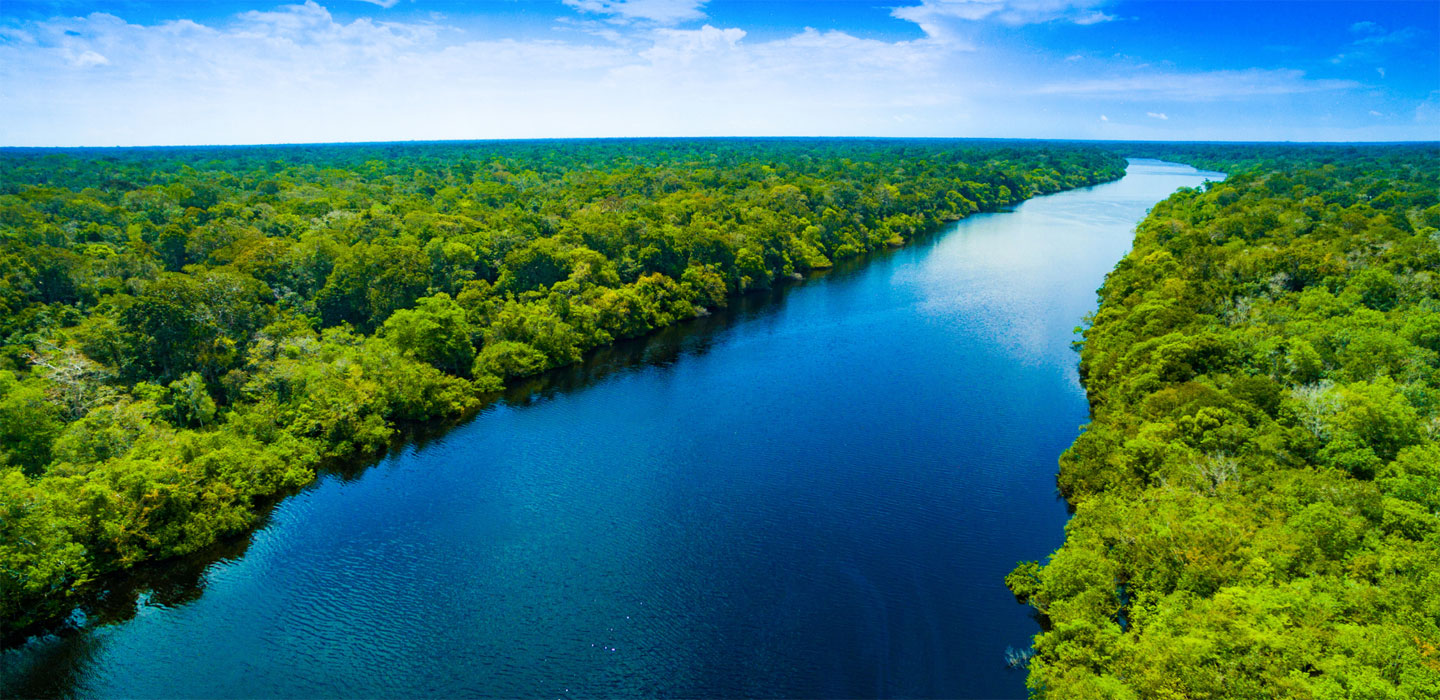IFAD project helps preserve the Brazilian Amazon Rainforest and improve communities' lives
IFAD Asset Request Portlet
ناشر الأصول
IFAD project helps preserve the Brazilian Amazon Rainforest and improve communities' lives
16 مايو 2023
Brasília, May 16, 2023 – The United Nations International Fund for Agricultural Development (IFAD) and the government of the state of Maranhão launched today a project that seeks to address the pressing issue of environmental degradation of the Amazon Forest in Maranhão and the high rates of poverty and food insecurity in the region - the “Amazon Sustainable Management Project (PAGES).”
“In Maranhão and other parts of Brazil, food insecurity and environmental degradation are deeply related. PAGES seeks to provide smallholder farmers and traditional communities with tools that allow them to improve their socioeconomic situation in line with an increase in natural resources. Long-term development and well-being are only possible through the sustainable use of nature,” said Claus Reiner, IFAD´s Director in Brazil.
The project area comprises three regions of the state of Maranhão: Amazonia, Gurupi and Pindaré, and includes the indigenous lands of Arariboia. It covers 58,755 km², which represents approximately 72% of the state's Amazon forest. This region faces constant threats of deforestation and degradation due to illegal logging and deforestation associated to the expansion of the agricultural frontier.
During the six-year implementation period, PAGES will enable the most vulnerable populations of the Amazon rainforest in Maranhão, including family farmers, indigenous peoples and other traditional communities, to develop and implement sustainable forest management practices, which will enhance productivity, promote biodiversity, and protect critical ecosystem services.
With the start of field activities scheduled for the second half of 2023, the aim is to benefit 80,000 rural inhabitants of Maranhão, 50% women and 25% young people and almost 15% of the project’s participants belonging to indigenous and other traditional communities, such as quilombolas and babassu coconut collectors. Furthemore, the project is expected to reduce greenhouse gas emissions by approximately 6 million tons of CO2 equivalent.
Valued at a total cost of US$ 37 million, IFAD´s contribution of US$17 million, generously donated by the Government of Germany through the Adaptation for Smallholder Agriculture Programme (ASAP+), will be supplemented by the Government of Maranhão with US$ 16 million, while US$ 4 million will be contributed by project’s participants.
Beyond the sertão for the first time
PAGES is the first IFAD-funded rural development initiative in Brazil that extends beyond the Northeast semi-arid region, known as sertão. The project, which became effective in May 2022, will benefit from the Fund's extensive experience in agroforestry practices, small-scale water infrastructure and rural organizations.
The project is carried out by SAF in strategic association with other entities, such as the Secretary of State for the Environment and Natural Resources, the Secretary of State for Human Rights and Popular Participation, the Institute of Colonization and Lands of Maranhão and the State Agency for Agricultural Research and Rural Extension.
Note to editors
Since the 1980s, IFAD´s investments in Brazil have focused on rural development activities in the semi-arid region of the Northeast of the country, known as sertão. All IFAD-supported projects in the country focus on supporting and promoting family farming, especially among the most vulnerable groups, such as indigenous and quilombola (Afro-descendant) communities, land reform settlers, women and youth.
The 13 projects supported by IFAD in the country invested a total of US$1.18 billion (over US$297 million of IFAD resources) and benefited around 615,400 families.
More information about IFAD's work in Brazil can be found at this link.
You can read some life stories about how IFAD supported projects are helping family farmers overcome the impact of COVID-19 and poverty at this link.
You can learn how IFAD supported projects are helping to maintain Brazil's biodiversity in this video.
The Adaptation for Smallholder Agriculture Programme (ASAP+) aims to mobilize $500 million from IFAD and other international donors to help more than 10 million smallholder farmers around the world adapt to climate change. It is the world's largest fund dedicated to this goal.
Press release No.: IFAD/45/2023
IFAD is an international financial institution and a United Nations specialized agency. Based in Rome – the United Nations food and agriculture hub – IFAD invests in rural people, empowering them to reduce poverty, increase food security, improve nutrition and strengthen resilience. Since 1978, we have provided more than US$24 billion in grants and low-interest loans to fund projects in developing countries.
A wide range of photographs of IFAD’s work in rural communities are available for download from its Image Bank.